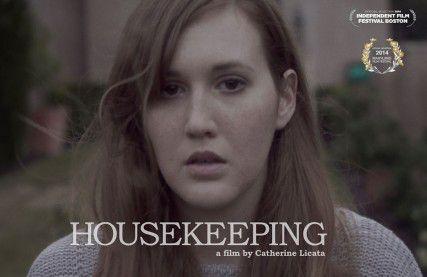Whether it’s the office assistant who just gave you directions, the barista who crafted your no-whip no-foam soy latte or the guy who cured your laptop of its crippling virus a day before that big paper of yours was due, Boston University runs in part thanks to the help of work-study students.
BU employs 2,500 students through the Federal Work-Study Program both on campus at offices, schools and facilities and off campus at nonprofit, incorporated community service organizations, according to the Student Employment Office website. On-campus work-study participants work under the supervision of supervisors overseen by the university, while those working off-campus are supervised by their respective non-profit, incorporated organizations.
The program, which is federally subsidized and administered by the university, helps students fund their educational expenses by providing them with access to part-time jobs while attending university. Work-study is a form of financial aid and is awarded through a student aid package based on calculated need.
With recent proposals in Congress geared toward cutting other forms of federal financial aid nationwide, work-study still remains an integral and prominent part of the collegiate financial aid system, and will perhaps become even more so if the federal government cuts funding.
“Given the record budget deficits, it is unlikely that Congress will increase student aid funding by much over the next decade. Instead, there will be greater emphasis on using current funding more effectively,” financial expert Mark Kantrowitz wrote in an article for The Huffington Post.
Generally work-study students work eight to 12 hours per week. Their pay ranges from $8 to $10.25 per hour, according to the BU Office of Financial Assistance.
Diverse Opportunities
After receiving the Federal Work-Study Grant in their financial aid package, students can search for a work-study job on the Work-Study Job Board on the Student Link or work with the BU Student Employment Office.
College of Arts and Sciences freshman Michelle Cedeño works as a gallery assistant and greeter at various university art galleries, including the George Sherman Union Gallery and the galleries at 808 Commonwealth Ave. Her duties include watching the exhibits, greeting patrons, answering questions and helping to set up the galleries.
“I am very happy with my job,” Cedeño said. “When I’m there, I get time to myself that I wouldn’t normally get back at some place like Warren Towers, just because I can quietly work on my homework and think about things while I’m working.”
Prior to attending BU, Cedeño worked at the St. Louis Art Museum. Upon filling out a survey listing her interests and work experience the summer before, the university offered her the job as gallery assistant.
Although Cedeño maintains that her work-study job is “a great opportunity,” she said she does not think the process is perfect.
“The one thing I would have changed about the process is that they should not base my job on prior work experience,” she said. “They should have listened to my interests more. I would have preferred to try something new instead of working in art again.”
When asked about her satisfaction with work-study, CAS freshman Lydia Hogan said, “Previous experience didn’t matter much for me as I was offered an on-campus office job doing simple filing, scanning and photocopying. All in all I’d say the work study program is pretty well-organized and I’m fortunate to have found a job through it.”
Hands-on Academics
Hogan, who works as an office assistant in the human resources office, said although her job isn’t exactly thrilling, it is relatively easy to balance with school work and other obligations.
“I can make my own schedule and only work about 10 hours per week. Also, seeing as my job is pretty mindless work, I don’t stress over it and if I really need to call out to study for an exam my boss knows that school comes first,” she said. “I feel fortunate to have a job, as many of my peers are struggling with pocket money.”
Work-study jobs can also contribute to one’s academic experience at BU, students say.
CAS freshman Anna Diorio works as an office assistant in the anthropology department. She said the work she has done this year within the department proved to be an integral factor in convincing her to choose anthropology as a major.
“I get a lot out of my work study job … and working in the department allows me to get to know the professors on a personal level,” Diorio said. “Also, I have direct access to my folder so I know my paperwork gets done, and it is much easier for me to make appointments with my academic adviser. Also, I always know about upcoming events and programs in the department, so I can get even more involved.”
Diorio said she has no problem balancing her school work with her job.
“My supervisors are very understanding and sympathetic to the fact that I am a full-time student with a part-time job, so if I have to call out of work to finish writing a paper, or get some more studying in, it usually isn’t a big deal,” she said. “Also, if it is a slow day at work, I can usually find time to study or do homework at my desk.”

















































































































